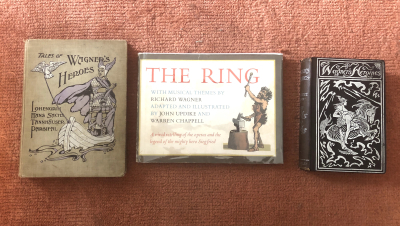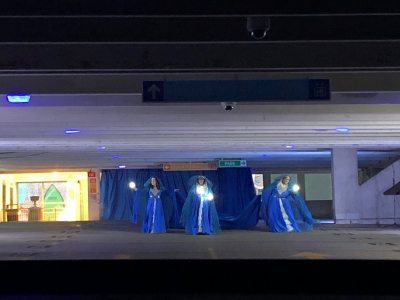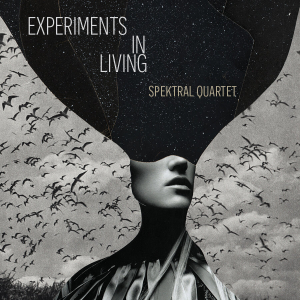Alex Ross's Blog, page 55
December 12, 2020
Apex 2020
Off the 15, somewhere between Barstow and Baker.
At the New Yorker website may be found my list of Notable Performances and Recordings of 2020.
The Rest Is Noise Person of the Year is Yuval Sharon.
Some notable music books of 2020: Philip Kennicott's Counterpoint (Norton), Laura Tunbridge's Beethoven: A Life in Nine Pieces (Yale UP), Mark Berry and Nicholas Vazsonyi's The Cambridge Companion to Wagner’s “Der Ring des Nibelungen” (Cambridge UP), John Luther Adams's Silences So Deep (FSG), Kyle Devine's Decomposed: The Political Ecology of Music (MIT Press), Maryanne Amacher's Selected Writings and Interviews, ed. Bill Dietz and Amy Cimini (Blank Forms), Jan Caeyers's Beethoven: A Life (University of California Press), Philip Clark's Dave Brubeck: A Life in Time (Da Capo), Roger Nichols's Poulenc: A Biography (Yale UP), Graham Johnson's Poulenc: A Life in the Songs (Norton).
Outside of music, I read with great enjoyment Garth Greenwell's Cleanness (FSG), Jordan Kisner's Thin Places (FSG), Adrian Daub's What Tech Calls Thinking (FSG), Hari Kunzru's Red Pill (Knopf), Daniel Mendelsohn's Three Rings (University of Virginia Press), Mike Davis and Jon Wiener's Set the Night on Fire (Verso), Rick Perlstein's Reaganland (Simon and Schuster), Ed Caesar's The Moth and the Mountain (Avid Reader), Nick Neely's Alta California (Counterpoint), Steven Johnson's Enemy of All Mankind (Riverhead) and, a year late, Robert Macfarlane's astounding Underland (Norton).
December 5, 2020
Warning: fin-de-siècle Wagner deepfake
The image above has been attached to several (generally very kind) articles about my book Wagnerism. It is advertised as an authentic Wagner photo on popular photo-farming services. Getty Images labels it "c. 1875." Alamy places it back in 1843. It dates, in fact, from some time after 1900, when Wagner had been dead for quite a while. It seems to derive from a series of staged photographs produced by the S. Blueh Wien Rotophot company — Rotophot being a popular consortium of postcard publishers. I would guess that it appeared around the time of the Wagner centenary in 1913. Here is another pose from the same series, marked "Erinnerung an Richard Wagner" ("Souvenir of Richard Wagner"). One can also see the Meister brooding at the keyboard as scenes from Act III of Tristan float through his head. The model bears a certain resemblance to Wagner, although Giuseppe Becce caught him better in the 1913 film The Life and Works of Richard Wagner. Thanks to Patrick Swanson and Andrew Newman for soliciting my opinion of the image, thereby sending me on one last Wagner Detour.
December 4, 2020
Virtual fall seasons
Première Content. The New Yorker, Dec. 7, 2020.
November 29, 2020
Sunrise hike
My younger self would have been aghast at the idea of a hike at sunrise. Until I was thirty or so, I routinely stayed up well past midnight, writing or drinking, and rose in the late morning, sometimes the early afternoon. I now regret all those hours spent sleeping through the light.
November 13, 2020
For David Elliott
David Elliott, the longtime mainstay of WHRB, the Harvard radio station, died yesterday at the age of seventy-eight, after a two-year struggle with ALS. For decades, David had been a pillar of the Boston classical-music scene, conducting countless interviews on his Monday-night program. His devotion to WHRB as an institution was absolute and selfless. At several crucial moments, he acted to save the station at a time when the Harvard administration was not particularly concerned about its fate. Under his guidance, WHRB became a place of musical discovery for generation after generation of undergraduates. So it was for me. My career and life would have been completely different without David's intervention.
I tried out for WHRB in spring 1987, at the suggestion of my freshman roommate Jon Lehrich, who, as it happens, has succeeded David as the chair of the station's board of trustees. David immediately noticed me as someone who was unusually interested in new music, music history, and recordings, and encouraged me at every turn. I remember his delight when I organized a chronological survey of the complete works of Benjamin Britten; many of the recordings came from his vast personal collection. In 1988, he had the idea of adding record reviews to the WHRB Program Guide. I now realize that he was opening a path for me even without my knowing it. On a more personal level, I was then a rather troubled kid, as the photograph above hints, and David was one of two adults on campus — the other was Robert Kiely — who gave me wise and gentle guidance. I owe him an incalculable debt, and mourn his loss alongside innumerable others.
A Harvard Gazette article from last year tells more of David's life and achievement.
November 1, 2020
More young-adult Wagner
I received a wonderful book-finishing gift from my colleague and friend Will Robin: a short illustrated version of Wagner's Ring, published in 1964, with illustrations by Warren Chappell and text by none other than John Updike. A section of Wagnerism is devoted to the curious spate of children's and young-adult Wagner books that came out around 1900, often with creatively bowdlerized treatments of the plots. The titles include Anna Alice Chapin's Wonder Tales from Wagner and The Story of the Rhinegold, Grace Edson Barber's Wagner Opera Stories, Florence Akin's Opera Stories from Wagner, Constance Maud's Wagner’s Heroes and Wagner’s Heroines, William Henry Frost’s The Wagner Story Book, and J. Walker McSpadden's Stories from Wagner. (McSpadden also wrote Famous Dogs in Fiction and Ohio: A Romantic Story for Young People.) In these retellings, fewer mishaps befall the characters: Akin allows both Siegfried and Brünnhilde to survive. My favorite evasion of Wagnerian difficulty comes from Chapin, describing Siegmund and Sieglinde: “They loved each other as much as though they had been really brother and sister.”
Siegfried fighting Fafner, by Warren Chappell
Updike, who evidently wrote his story for the benefit of his sons David and Michael (so the dedication suggests), makes his own adjustments to the tragic plot of the Ring. Although he does not hide the incestuous relationship between the twins, he passes over the story quite hastily: "Their life was unhappy, but before they died, they had a son, Siegfried, who has been raised in the deep forest by a kind and clever dwarf." When Siegfried takes the Ring from Fafner, he does not kill Mime but simply walks away: "So small do greedy people seem to a man filled with the music of love." And the entire action of Götterdämmerung is confined to a couple of extremely vague sentences at the end: "Siegfried and Brunhilda knew joy in one another, but did not live happily ever after. No human beings do. In time they died, and in dying returned the Ring to the mermaids of the Rhine, where to this day the gold may be seen glittering — though people say it is just the sun mixing with the water."
Yuval Sharon's Twilight: Gods
October 31, 2020
Nightafternight playlist
New and recent releases of interest.
Ash Fure, Something to Hunt; International Contemporary Ensemble, Interlochen Arts Academy Orchestra, Nate Wooley, Rebekah Heller, Brandon Lopez (Sound American)
Clara Iannotta, Earthing; JACK Quartet (Wergo)
Sarah Hennies, Spectral Malsconcities, Unsettle; Bearthoven, Bent Duo (New World)
Du Yun, A Cockroach's Tarantella; Du Yun, JACK Quartet (Modern Sky)
Experiments in Living: Music of Brahms, Schoenberg, Crawford Seeger, Pluta, Cheung, Charmaine Lee, George Lewis; Spektral Quartet, with Claire Chase (New Focus)
Bára Gísladóttir, HĪBER (Dacapo)
Sarah Davachi, Cantus, Descant (Late Music)
Jürg Frey, l'air, l'instant; Reinier van Houdt, Dante Boon (Elsewhere)
Ives, Symphonies Nos. 1–4; Gustavo Dudamel conducting the LA Philharmonic (DG)
Encounter: Music of Bach/Busoni, Brahms/Reger, Reger/Becker, Morton Feldman; Igor Levit (Sony)
Silver Age: Music of Scriabin, Prokofiev, Stravinsky; Daniil Trifonov, Valery Gergiev conducting the Mariinsky Orchestra (DG)
Voices of the Wilderess: Music of the Ephrata Cloister; Elizabeth Bates, Clifton Massey, Nils Neubert, Steven Hrycelak, Christopher Dylan Herbert directing (Bright Shiny Things; out Nov. 20)
October 22, 2020
George Lewis in Berlin
George Lewis, a pivotal figure in early twenty-first century American music, is spending the academic year in Berlin, on a fellowship at the Wissenschaftskolleg. He will be completing his new chamber opera Comet/Poppea, a hybrid work combining a setting of W. E. B. Du Bois's sci-fi story "The Comet" with an adaptation of Monteverdi's L'incoronazione di Poppea. Yuval Sharon will direct the inaugural production in New York and Long Beach in June 2021. While in Europe, Lewis will be collaborating with two renowned ensembles: first, the London Sinfonietta, for which he has co-curated — with Elaine Mitchener — a program of Jason Yarde, Leila Adu-Gilmore, Hannah Kendall, Tania León, Courtney Bryan, and Lewis himself (Oct. 28); and the Ensemble Modern, for which he has assembled an "Afro-Modernism" lineup of Alvin Singleton, Jessie Cox, Daniel Kidane, Andile Khumalo, and Kendall and León again (Nov. 7 in Essen, Nov. 13 in Frankfurt). The Sinfonietta concert will be broadcast on BBC Radio 3; whether any of the Modern material will travel the airwaves is unclear. If you want a marvelous survey of Lewis's musical world-view, watch the Spektral Quartet's Floating Lounge session with the composer, with a playlist ranging from Coltrane to Czernowin.
Billy Budd, Beau Travail
Alex Ross's Blog
- Alex Ross's profile
- 425 followers



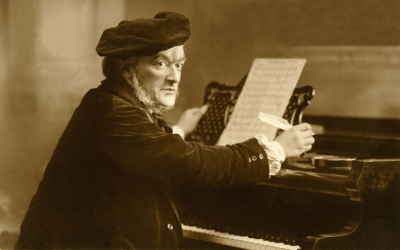
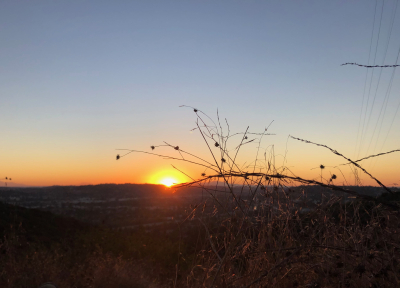
![SCAN0005[2]](https://i.gr-assets.com/images/S/compressed.photo.goodreads.com/hostedimages/1605368980i/30377026.jpg)
